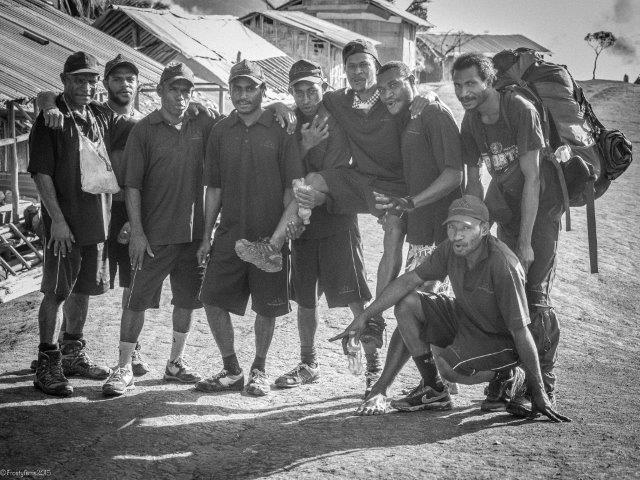Ethical Trekking

In a developing country like Papua New Guinea there is always a permanent danger of exploitation, low wages, long hours, poor working conditions, often unsafe and unhealthy, inadequate clothing and equipment, no accident or health insurance, and no pension provision.
We have a responsibility to help those on whom we rely on as porters and guides to improve their wages and conditions and realize their right to a decent standard of living.
Many trekking companies that work in Papua New Guinea are not based in country. It is also concerning that the majority of these companies are working illegally.
Most are concerned with driving costs down than with the health, safety and well - being of those they employ.
We action to improve wages and working conditions; support for workers subject to discrimination and oppression: and the provision of services, such as clothing and equipment, shelters for porters, ensuring they are kept healthy and well whilst under our employment, also implementing education and training programs. Ensuring there is succession plans for those retiring. We are also committed to ecologically sustainable trekking
When planning a trek we should be aware of the following code of good practice.
Wherever possible, hire a porter, this ensures that money benefits the village economy and PNG workers directly.
Make sure that the trekking agency actually observes its responsibility to ensure that its porters and guides are properly trained, equipped, paid, and insured. That the company is registered in Papua New Guinea and is adhering to and compliant with PNG law.